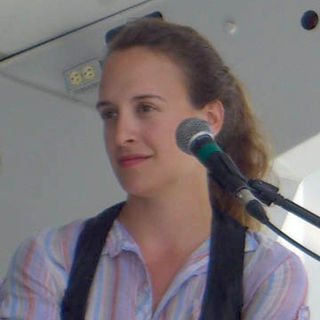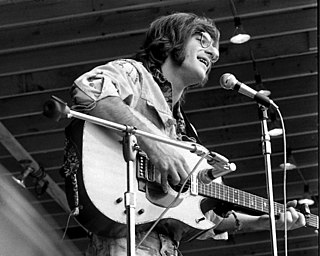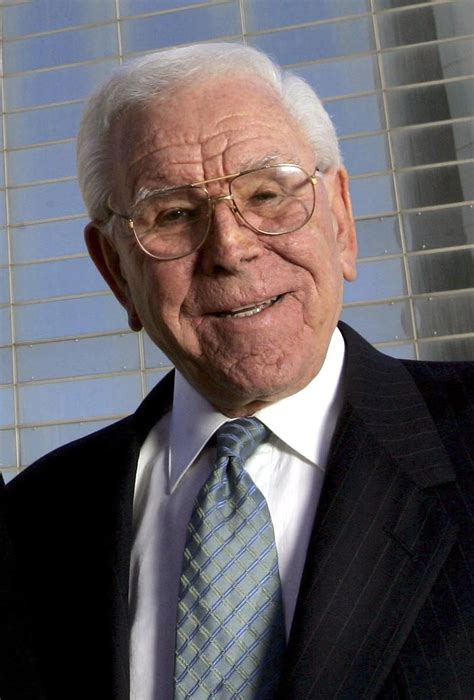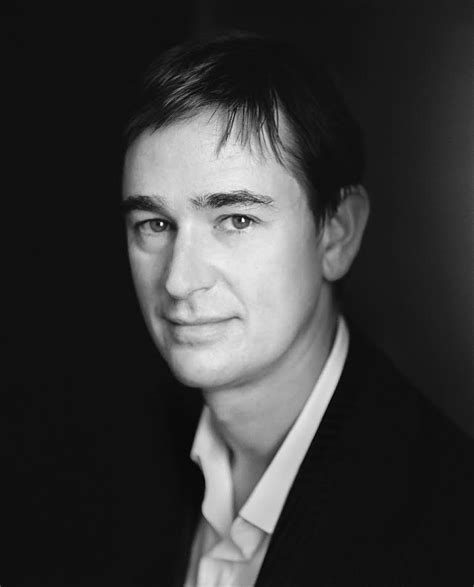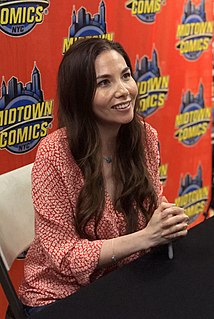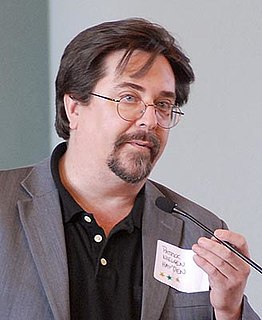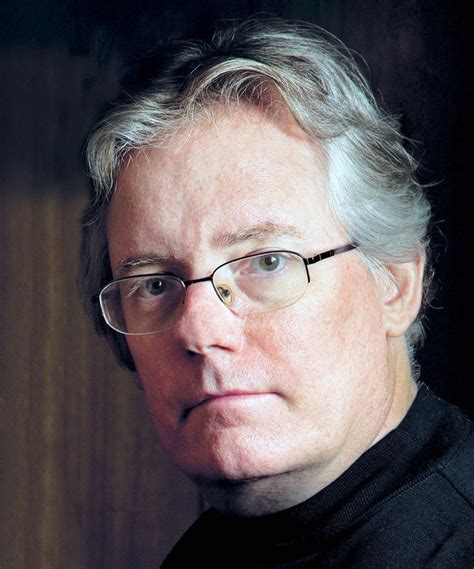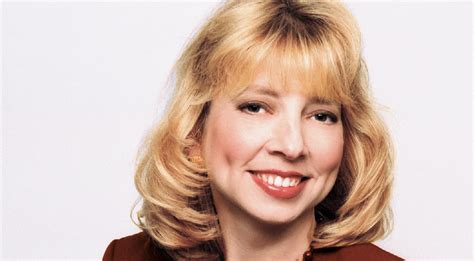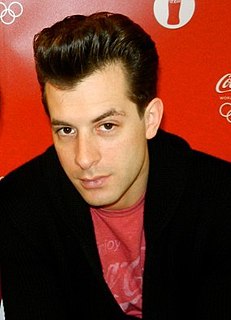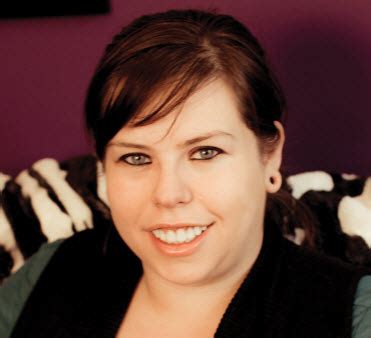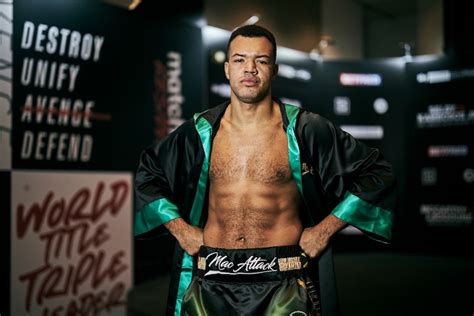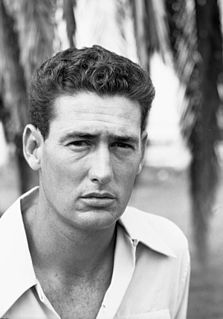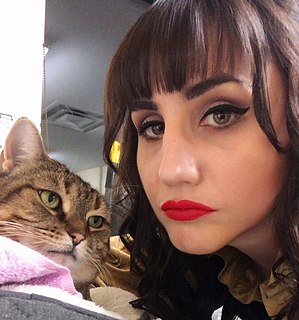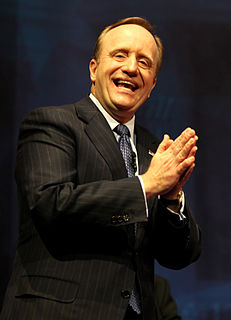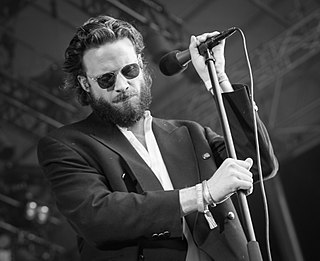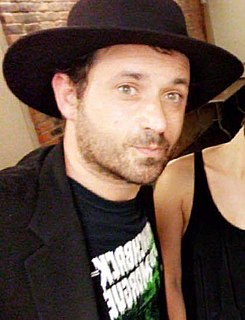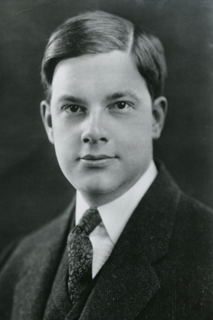Top 1200 Publishing House Quotes & Sayings - Page 2
Explore popular Publishing House quotes.
Last updated on April 15, 2025.
A lot of people get to the point in their careers where blurbs are ghostwritten for them, because they're like, "I want to support this person, it's good for my career," and so they get someone at the publishing house to do it, or they copy something from the press release. People write their own blurbs, absolutely, some huge percentage of the time.
Booksellers are tied to publishing - they need conventional publishing models to continue - but for those companies, that's not the case. Amazon is an infrastructure company; Apple sells hardware; Google is really an advertising company. You can't afford as a publisher to have those companies control your route to market.
With the old economics destroyed, organizational forms perfected for industrial production have to be replaced with structures optimized for digital data. It makes increasingly less sense even to talk about a publishing industry, because the core problem publishing solves — the incredible difficulty, complexity, and expense of making something available to the public — has stopped being a problem.
I know publishing now more as an author than with occasional peaks inside those elite offices than as an industry insider. It was difficult publishing a novel the first time around, while working behind the scenes, knowing all that has to happen to make a book a success and to still make the leap as an author.
With the publishing of The Basic Eight, it was often assumed that I was really immature and callow, and with the publishing of Watch Your Mouth, it was assumed that I was oversexualized, and with Lemony Snicket, it's often assumed that I'm erudite and depressed. But all the voices more or less came naturally to me.
I'd written my first novel for adults, which was called Basic Eight and was set in a high school, and we were having a devil of a time selling it. It ended up in the hands of an editor of a children's publishing house, for which it was entirely inappropriate. She said, "Well, we can't publish this, but I think you should write something for children," which I thought was a really terrible idea.
It's interesting to me that really one of the first things she [Eleanor Roosevelt]did as First Lady was to collect her father's letters and publish a book called The Letters of My Father, essentially, hunting big game, The Letters of Elliott Roosevelt. And it really was an act of redemption, really one of her first acts of redemption as she entered the White House. She was going to redeem her father's honor. And publishing his letters, reconnecting with her childhood really fortified her to go on into the difficult White House years.
That is the person you want publishing your book. To be in it, you really have to believe in books and love whatever it is you're publishing. Both on the book side and especially on the magazine side, I've had editors that I did not get the same feeling from. That feeling of, "This is something I believe in, I don't care how long, I'm going to publish it" - that kind of passion and commitment means a lot to you.
I started out writing romance novels, and that's a side of publishing that's very female oriented. 99.9% of the writers are women, most of the editors are women, and these are books written for the female gaze. And so my point of view - the way I looked at fandom and publishing and writing - was all about women. So for me that's what was natural, that's what was comfortable. And then I moved over to comics. And all of a sudden it was... Pardon the expression, it was a sausage fest.
Before I wrote my first novel, 'The Expats,' I spent nearly two decades at various arms of publishing houses such as Random House, Workman, and HarperCollins, mostly as an acquisitions editor. But a more accurate title for that job might be rejection editor: while I acquired maybe a dozen projects per year, I'd reject hundreds upon hundreds.
For me, titles are either a natural two-second experience or stressful enough to give you an ulcer. If they don't pop out perfect on the first try, they can be really hard to repair. Or, worse, if the author thinks they pop out perfect, but the publishing house does not agree, it's difficult to shift gears. And then? Then you go insane.
There are people who have never studied writing who are capable of being writers. I know this because I am an example. I was a part-time registered nurse, a wife, and a mother when I began publishing. I'd taken no classes, had no experience, no knowledge of the publishing world, no agent, no contacts ... Take the risk to let all that is in you, out. Escape into the open.
My first job out of college was as an editorial assistant in a New York publishing house. Being an editorial assistant is the purgatory would-be editors must endure before they can ascend the ladder and begin acquiring books on their own. I spent a year filing paperwork, writing copy, and typing rejection letters.
I don't think anyone is ever writing so that you can throw it away. You're always writing it to be something. Later, you decide whether it'll ever see the light of day. But at the moment of its writing, it's always meant to be something. So, to me, there's no practicing; there's only editing and publishing or not publishing.
I was going to do a big radio show, and I said to my driver, 'Radio can wait, take me to the Full House house.' It literally was a drive-by. I photobombed the Full House house yesterday. I took like 20 pictures because I thought I didn't look good in any of these - you can't see the house! You gotta really show that that's the house!
'Band Played On' is a good one. Barbara Orbison, who was Roy's wife, was involved in publishing in Nashville because she oversaw Roy's publishing, and she had a company in Nashville. She had a whole bunch of writers assembled, and they got together every day and wrote, and they write for everybody in Nashville.
When I was seven or eight years old, I began to read the science-fiction magazines that were brought by guests into my grandparents' boarding house in Waukegan, Illinois. Those were the years when Hugo Gernsback was publishing 'Amazing Stories,' with vivid, appallingly imaginative cover paintings that fed my hungry imagination.
Publishing has gone very middlebrow. It's turned its back on legacy of modernism and gone into a humanist mode. When people go through art school they are exposed to the history of the avant-garde, and there's a general understanding that what you're doing as an artist is to a large extent, not just regurgitating that history, but engaging with it. There's this denial of that in the mainstream publishing world.
Self-publishing in comics is core to the whole artform. There is no scarlet letter in comics as there still is, to some degree, in prose. As no publisher for a long time would publish serious work in comics, the only way a lot of it came out was because of self-publishing. Many of the greatest works of the medium are self-published.
Say you're an American novelist, published by the largest publishing house in the world. Their goal is to make as much money from you as possible, to have as many people read your book in as many formats as possible. How can you hope to speak intimately to the numbers of people that represent the book sales required?
North Carolina Senator Jesse Helms has signed a deal with Random House to write his memoirs. Scholars will no doubt benefit from the reflections of a man who was wrong on every major issue for 40 years. Helms' aides say the proceeds from the book will be donated to the non-profit Jesse Helms Center where they apparently have more experience burning than publishing them.
Unbeknownst to me, two readers of the posts, both published authors, contacted their agent, Bill Jensen, within 24 hours of each other, encouraging him to drop me a line. Which he did. He shared his extensive publishing background with me, and prayerfully offered to work out a proposal and to see if God opened any publishing doors? I never get over the unexpected ways of God.
My idea of that[idea of career] is constantly changing. I mostly just throw it out to the universe and I can't really do much after that. I've never taken the steps to be "successful": I've never had a manager or signed to a publishing house. I've talked to people about it but I've never followed through because it gives me the creeps.
I more seriously considered publishing it under a pseudonym than I considered publishing it as fiction. I think the decision to write it as nonfiction happened at the very outset of the process, because the overwhelming impetus for writing this book was to understand what the experience meant, and to override my own reductions and rationalizations, whatever story I had that was not true. It didn't sit well with me and I needed to answer that. That's sort of the reason I write everything.
There is a marvelous peace in not publishing. It's peaceful. Still. Publishing is a terrible invasion of my privacy. I like to write. I live to write. But I write just for myself and my own pleasure. I don't necessarily intend to publish posthumously, but I do like to write for myself. I pay for this kind of attitude. I'm known as a strange, aloof kind of man. But all I'm doing is trying to protect myself and my work.
WikiLeaks does not publish from the jurisdiction of Ecuador, from this embassy or in the territory of Ecuador; we publish from France, we publish from, from Germany, we publish from The Netherlands and from a number of other countries, so that the attempted squeeze on WikiLeaks is through my refugee status; and this is, this is really intolerable. [It means] that [they] are trying to get at a publishing organisation; [they] try and prevent it from publishing true information that is of intense interest to the American people and others about an election.
I never actually sought out an agent or a publishing house. A friend of mine named David Simmer got wind of what I was doing, and he sent one of my books to a literary lawyer in Los Angeles. He loved it, and he sent it to other people, including an agent, and he picked me up, and that's how 'Bird Box' got to where it is now.
There's a reason that so much good material is coming down to the small presses: it's difficult to turn a profit, all things considered. But you can't go into small press publishing and complain about the money. Our Little Island publishing just needs to survive. If we're still around in a few years - in vaguely the same shape as we are today - then, to me, that's success.
